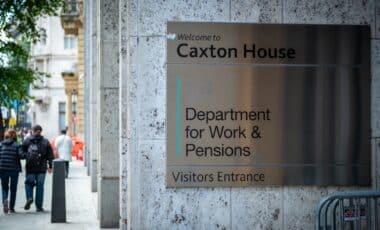Millions of Universal Credit claimants across the UK will benefit from a rise in payments this month, as part of the annual uprating process. The increase, which took effect from April 7, will see a 1.7% boost in Universal Credit payments, with the first higher payments arriving this month.
The changes, which are based on the claimants’ assessment periods, are expected to provide some relief for those who rely on the benefits system. The increase in Universal Credit payments is part of the government’s annual effort to ensure that benefit rates keep pace with inflation.
As many claimants will notice, the first higher payments will be received after the end of their assessment periods.
How Much More Will You Receive?
For individuals under 25, the standard allowance will rise from £311.68 to £316.98 a month. Those aged 25 and over will see their monthly allowance increase from £393.45 to £400.14. Joint claimants, with both individuals under 25, will receive an increase from £489.23 to £497.55 a month.
Meanwhile, for joint claimants with one or both aged 25 or over, the monthly allowance will increase from £617.60 to £628.10. These increases apply to assessment periods starting from April 7, and the payments will be made the following month, due to the monthly arrears system used by Universal Credit, according to the Mirror.
These adjustments, though modest, are an important step in addressing the rising cost of living, especially for households with children or those unable to work due to illness. The increased rates aim to ease the financial pressure on vulnerable individuals, ensuring they receive adequate support to meet basic living expenses.
The increase also comes at a time when the government continues efforts to fully transition individuals from older benefits like Working Tax Credit and Housing Benefit to Universal Credit, a process set to be completed by March 2026.
A Continued Transition to Universal Credit
The gradual shift to Universal Credit continues to reshape the UK’s welfare system. Universal Credit has already replaced six other benefits, including Tax Credits, Income Support, and Jobseeker’s Allowance.
Claimants still on older benefits, such as income-related Employment and Support Allowance (ESA), are being contacted by the Department for Work and Pensions (DWP) to inform them of the upcoming transition to Universal Credit, with full migration expected by 2026.
As the system progresses, claimants must remain proactive in reporting any changes to their circumstances to avoid overpayments or underpayments.
The DWP has emphasised the responsibility of claimants to update their details, including changes in employment status, address, or living arrangements. Failure to report changes could lead to financial discrepancies that would need to be repaid.









